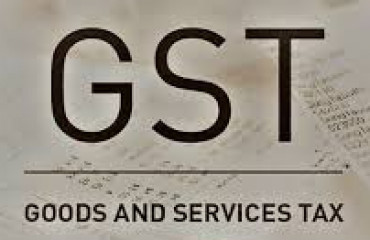
India wants to tax crypto transactions under its goods and services tax (GST) regime, but officials aren’t sure whether to classify these digital assets as goods or services. Law officers are grappling with several questions: Should these digital assets qualify as goods or services? Who would be liable to pay GST? On what value would the levy apply? And anyway, valuation is tricky as these digital assets are volatile.
India wants to tax crypto transactions under its goods and services tax (GST) regime, but officials aren't sure whether to classify these digital assets as goods or services. Law officers are grappling with several questions: Should these digital assets qualify as goods or services? Who would be liable to pay GST? On what value would the levy apply? And anyway, valuation is tricky as these digital assets are volatile.
It would be simpler to treat crypto assets as securities on par with shares and bonds that are exempt from GST. Selling and buying listed securities on stock exchanges is also exempt from GST. These transactions attract securities transaction tax (STT). Both the seller and the buyer in a transaction pay STT, which is collected by the stock exchange and deposited by it with the government.
That's not all. The profits made from sales of shares are also taxed. If cryptos are treated as securities, then an exemption from GST can be granted for the sale and purchase of cryptos. Instead, STT and capital gains tax can be levied.
Now, crypto exchanges pay GST on the transaction fee they collect from their customers. GST is also charged on brokerage services for buying and selling of shares and bonds. Similarly, GST can be imposed on wallets used for trading and transacting cryptos. Treating cryptos as securities will bring them under Sebi regulation, allowing for crypto exchanges to be formalized and registered with the markets watchdog.
The GST Council must ensure clear and simple tax treatment of these digital assets to bring in certainty to investors. Legal backing for cryptos brooks no delay. An estimated 100 million people in the country are crypto owners, underscoring the need for the government to swiftly enact a law on cryptos that lays out clear definitions and disclosure rules for all such holdings. The presence of a regulatory regime will make the case to carve out a provision for cryptos under the GST stronger.
The Constitution defines GST as any tax on the "supply of goods, or services or both except taxes on the supply of the alcoholic liquor for human consumption". The levy removes the cascade of multiple taxes that products bear and makes tax set-offs available on inputs across the value chain, making production efficient. The GST law has laid out definitions for both goods and services. Broadly, every kind of movable property, other than money and securities, are treated as goods. Services means anything other than goods, money and securities. Securities are exempt from the definition of both goods and services, and treated as "non-taxable supply".
Grouping cryptos as "goods" could pose a challenge due to their price volatility. Valuing crypto transactions would be tough since GST is levied on value addition at every stage and manufacturers are allowed to take credit for the taxes that they pay on inputs. A working paper on the Taxation of Cryptocurrencies by Vidhi Legal Policy Centre, an independent think tank, has highlighted the many complexities of treating these digital assets as "goods". It says the taxation framework should be designed not to disproportionately encourage or deter activity in this space. That the government's aim must be to earn revenue, without stifling innovation, is a fair point.
Through a circular issued in April 2019, the Reserve Bank of India (RBI) placed a ban on entities regulated by it from dealing with crypto transactions due to investor risk. Sensibly, the Supreme Court struck that circular down in 2020, saying that it was disproportionate to the otherwise consistent stand taken by RBI that virtual currencies are not forbidden. The legitimacy of cryptos must be swiftly resolved after consultations with regulators, even if it does not have a bearing with its tax treatment under GST.
Countries across the world have adopted different ways to tax cryptos. Australia, for example, charged GST on sales and purchase of digital currencies before 1 July, 2017. However, the tax treatment was rolled back on the grounds that consumers who used digital currencies were effectively taxed twice – once on the purchase of the digital currency and again on its use in exchange for other goods and services (that attracted GST). But any business in relation to digital currency could attract GST. India must avoid such flip-flops.
From April this year, the government has started levying a flat 30% tax on gains made from the sale of virtual digital assets (VDAs) and charging 1% tax deducted at source (TDS) on transfer of such assets above certain thresholds. But here again, valuation is posing a challenge, and that needs to be resolved.
